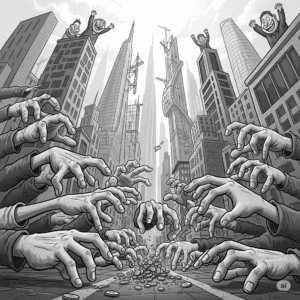The recent firing of Bureau of Labor Statistics (BLS) Commissioner Erika McEntarfer is more than a personnel decision; it is a direct assault on the economic integrity of our nation. Following a jobs report that showed a significant slowdown and major downward revisions to previous months’ data, President Trump’s immediate demand to fire the commissioner is a clear attempt to politicize objective economic facts.
The Bedrock of a Healthy Economy
This is a dangerous path. The jobs report, the CPI, and other key metrics are not just political talking points—they are the bedrock upon which our economy is built. Businesses use this data to plan investments, workers use it to negotiate wages, and financial markets rely on it to function. When the credibility of these numbers is shattered, trust in the entire system erodes.
The Perils of a “Data Trap”
An economy built on fudged numbers is an economy on a faulty foundation. It leaves businesses blind, investors wary, and the working class trapped by a reality that officials refuse to acknowledge. The same policies that lead to a “tariff trap” can create a “data trap,” where the numbers are manipulated to justify a failing agenda, but the pain remains real.
Why We Must Protect Our Economic Compass
This isn’t just about a single jobs report; it’s about whether we, as a nation, can trust our own economic compass. Without that trust, we are flying blind, making decisions based on fiction rather than fact.
What do you think about the politicization of economic data? Read my other no punches pulled rant on the “tariff trap” here.
Yours Truly. Jack Hammer.














